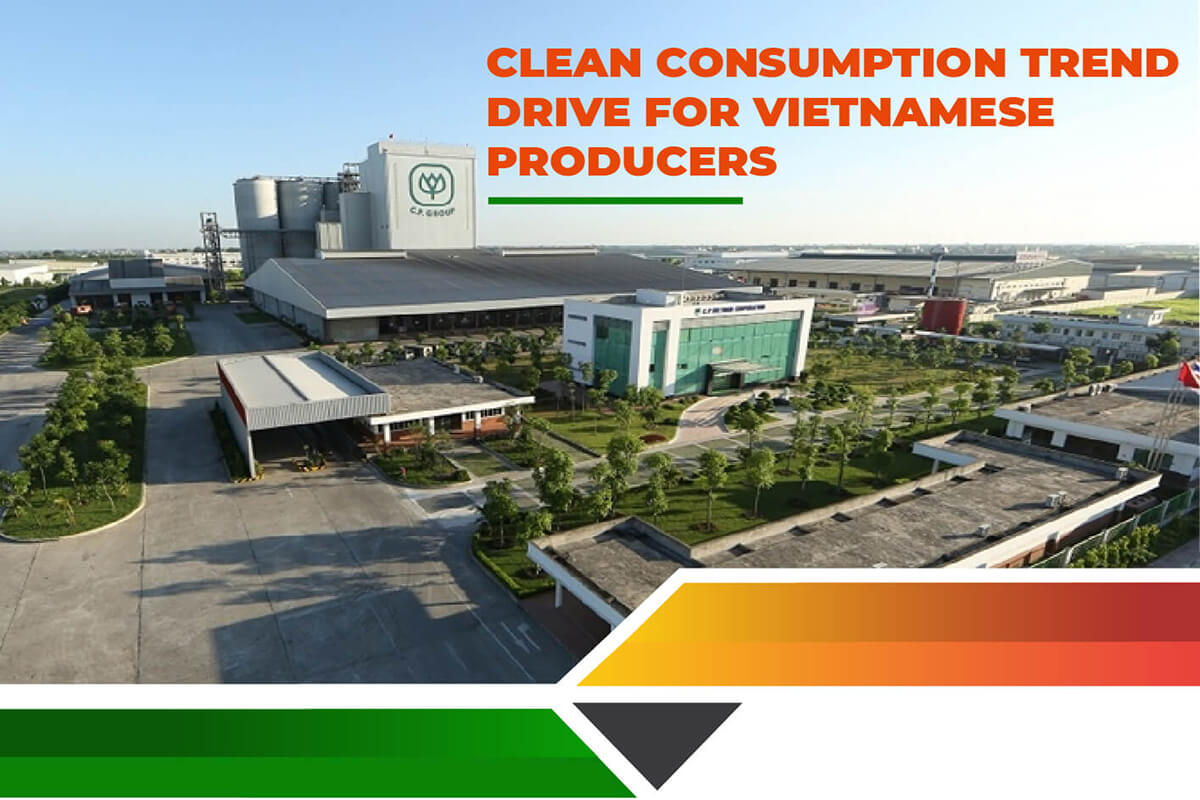According Directorate for Standards, Metrology and Quality, 84% of trade organizations adopt standards in their export, and 80% of international trade transactions are impacted by standards. The demands for clean consumption to satisfactory standards have forced domestic producers to change.
CONSUMER TRENDS
FORCE PRODUCERS TO CHANGE
![]()

Ms. Vu Kim Hanh, Chairman of the Business Association of High Quality Vietnamese Goods stated that consumers are establishing stricter and stricter criteria for food products they use, so if businesses do not change to meet these demands, they will be certainly left behind the competition.
To be more specific, Ms. Vu Kim Hanh cited a survey carried out and released by BSA at the end of February 2019 that indicated that in both international and domestic markets, 90% of consumers found that “ISO, VietGAP and GlobalGAP certified products” will give them reassurance. The research further shown that quality and safety in use are two factors of interest to consumers above all. This demonstrates that if producers and businesses aim to win consumers, they need to pay closer attention to adopt these certificates into production standards.
Likewise, a big food company in Ho Chi Minh City stated that given higher demands from consumers, without any switch to production approach of “top delicious and clean quality”, it would be difficult to compete in the market. Specially, the Comprehensive and Progressive Agreement for Trans-Pacific Partnership – CPTPP, which came into effect on 14 January, has opened up a new playground, but also close opportunities if Vietnamese businesses do not catch up with this trend.

Derived from the aforementioned demands and pressure, a large number of businesses have changed their approach to consumers by producing based on orders from importers. Take CP Ben Tre fishery processing plant for example. While exporting frozen pangasius in Japanese market with a moderate quantity, in 2018, thanks to improvement in production process, the plant had a production capacity of 1,000 tons, a 20-fold increase as compared to 2017. In 2019, CP Ben Tre is expected to raise its export to 1,500 tons in accordance with Aquaculture Stewardship Council Certification (ASC) based on 4 pillars including
environment, society, animal security and food safety.

Regarding the growth of Ben Tre fishery processing plant, Mr Yasuo Nishitoghe, CEO of AEON Vietnam, direct importer of these products, stated that before 2018, AEON placed orders for frozen pangasius produced by this plant, but with limited quantity and low
evaluation by Japanese consumers. Afterwards, AEON’s technical experts worked with CP and required the plant to change standards from farming area to processing methods. Thanks to that, products have been well received by Japanese consumers, resulting in a 20-fold increase in 2018.
“MARATHON” OF CLEAN FOOD
PRODUCTION AMONG DOMESTIC PRODUCERS
![]()
![]()
In practice, clean food production are being “heavily invested” by businesses. Mr Nguyen Ngoc An, CEO of Vissan JSC, stated that since 2011, Vissan have implemented this model by building food processing industrial cluster in Long Anh with an investment of over VND 1,500 and 2 phases in accordance ISO, HACCP and other standards related to food hygiene and safety.

In which, phase 1 is expected to come into operation in 2019 with comprehensive investment in cattle and poultry slaughter and food processing system such as slaughter line,
refrigeration system; Sewage treatment system; by-product processing and producing plants. Phase 2, expected to complete in 2020, will build by-product processing and producing plants, expand the high-end food product with high added value, and treat sewage at the second phase.
In the marathon of safe food chain model development, Mr Pham Thanh Hung, Deputy General Director of Ba Huan JSC stated that Ba Huan invested hundreds of billions to build 4 high-tech poultry egg production plants in Binh Duong, Ho Chi Minh City, Long An and Hanoi. Moreover, Ba Huan’s egg-laying chicken and broiler farms all meet Hyaline Corporation’s standards (US) and all farming processes are automatic to ensure food hygiene and safety standards, ISO for consumption and export.

Beside that, to ensure product quality, apart from specifying standards, Saigon Trading Group (Satra) usually cooperates with local provinces to monitor producers’ farming processes in accordance with VietGAP, GlobalGAP and food hygiene and safety standards on each product. “Recently, Satra has partnered and supported farmers in Long An, Tieng Giang and Lam Dong to complete agricultural product quality, and consume agricultural products from these provinces in a self-sufficient production method with traceability to ensure food hygiene and safety to provide for consumers”, further stated Satra’s representative.
According to AEON Vietnam, thanks to changes in production processes to meet stricter demands from consumers all over the world, orders and added value of Vietnam’s food processing companies have significantly increased, taking sales through AEON network for instance.





